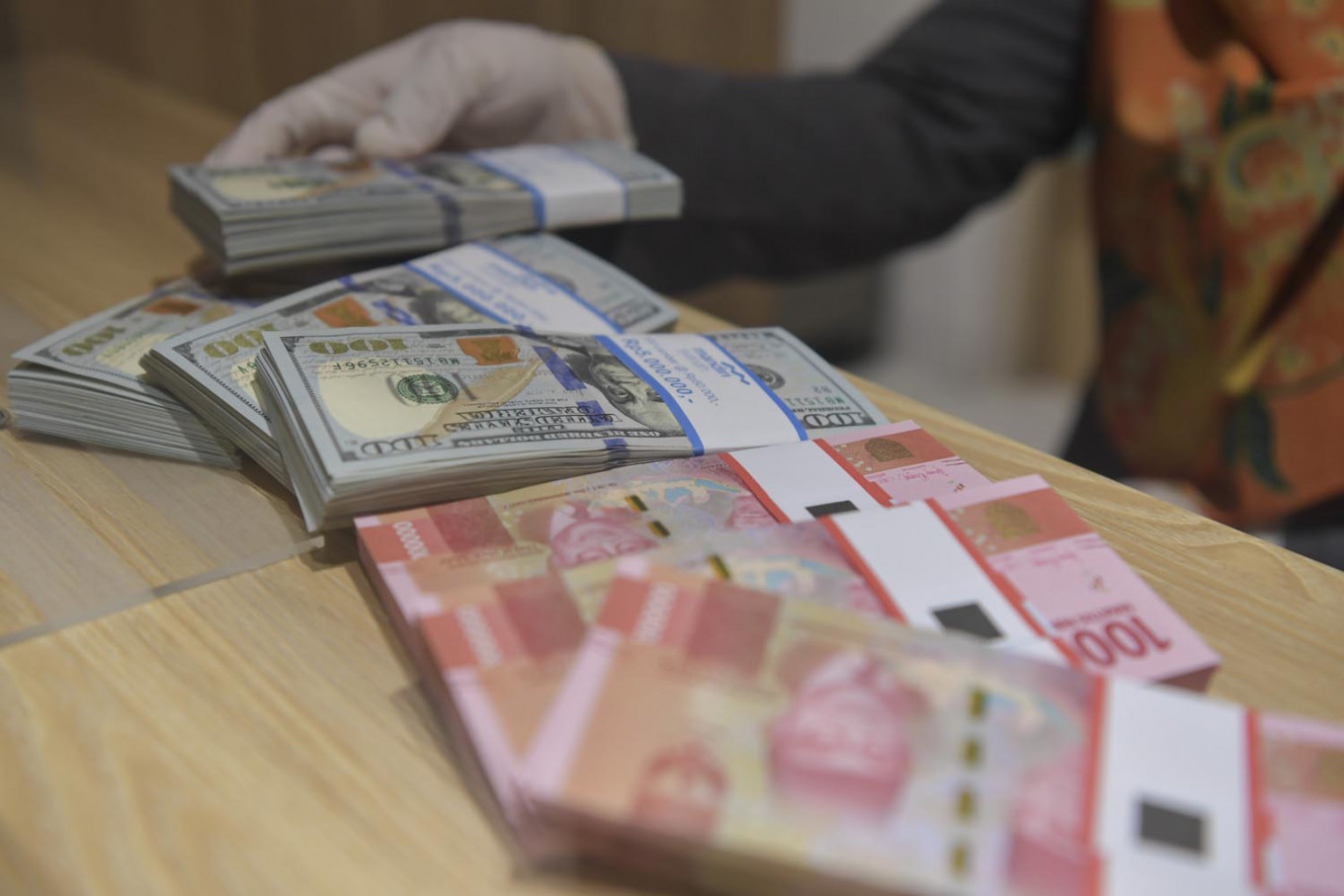Popular Reads
Top Results
Can't find what you're looking for?
View all search resultsPopular Reads
Top Results
Can't find what you're looking for?
View all search resultsRupiah to strengthen further as foreign investors make comeback: Bank Indonesia
The rupiah has rebounded by almost 15 percent since the end of March to reach 13,877 per US dollar on Friday.
Change text size
Gift Premium Articles
to Anyone
B
ank Indonesia (BI) expects the rupiah to strengthen even after the currency returned to levels seen before the COVID-19 crisis, as foreign investors make a comeback on the back of a global economic recovery.
The rupiah has rebounded by almost 15 percent since the end of March to reach 13,877 per US dollar on Friday, Bloomberg data shows, erasing most of the losses it recorded in the first three months of the year amid fears of the outbreak.
“Foreign investors’ confidence in Indonesia's economy is getting better as reflected by rising capital inflow into government bonds,” BI Governor Perry Warjiyo told reporters in a live-streamed news conference on Friday. “The rupiah remains undervalued and will strengthen further.”
The rupiah is still undervalued as the country’s credit default swap had yet to fall into pre-pandemic levels, while its current account deficit narrowed and inflation remained low, Perry explained.
The currency crashed to its worst level of 16,575 against the greenback during the 1998 financial crisis on March 23, when fears over political unrest prompted investors to dump Indonesian assets. They dumped US$10.34 billion worth of assets in the first quarter, according to Finance Ministry data.
The government and the central bank have pledged to strengthen its cooperation and measures to ensure macroeconomic and financial system stability. BI decided to hold its benchmark interest rate at 4.5 percent last week, despite room for further easing to maintain financial market stability.
The financial market is currently being buoyed by hopes of an economic recovery as Jakarta, Indonesia’s financial hub and an engine of growth for the economy, will begin to reopen the economy with offices, restaurants and retail outlets permitted to open from June 8 under strict health protocols.
The central bank reported Rp 18.67 trillion ($1.33 billion) in net inflows, mainly in sovereign debt papers, from the second week of May to the first week of June. From April 1 to May 14, BI recorded $4.1 billion in net inflows.
“Our foreign exchange reserves will increase this month, driven by a strengthened rupiah and capital inflows,” Perry said, adding that relatively better market conditions from three months ago reduced the need for the central bank to conduct a market intervention.
The central bank has bought up to Rp 166 trillion in government bonds in the secondary market during the first quarter of 2020 to stabilize the rupiah and another Rp 26.1 trillion to support budget financing needs, boosting the central bank’s ownership of government bonds to Rp 445.4 trillion.
“We believe that BI’s policy measures will continue to cushion the rupiah in the short-term,” researchers at Fitch Solutions wrote in a research note. “Moreover, a forecast narrowing in CAD in 2020 due to slightly cheaper imports will also add to investors’ confidence in Indonesia’s fundamentals.”
However, they warned that risks remained for the currency as Indonesia continued to record new COVID-19 cases while facing a limited healthcare capacity.
“The government’s initial mismanagement of the COVID-19 outbreak led to a collapse in investors’ confidence in the country’s assets, including the rupiah.
“Downside risks will continue to emerge from the COVID-19 outbreak in Indonesia. As we have noted, cases across Indonesia continue to rise at a rapid pace and the country has limited healthcare and financial resources to deal with a widespread outbreak.”










